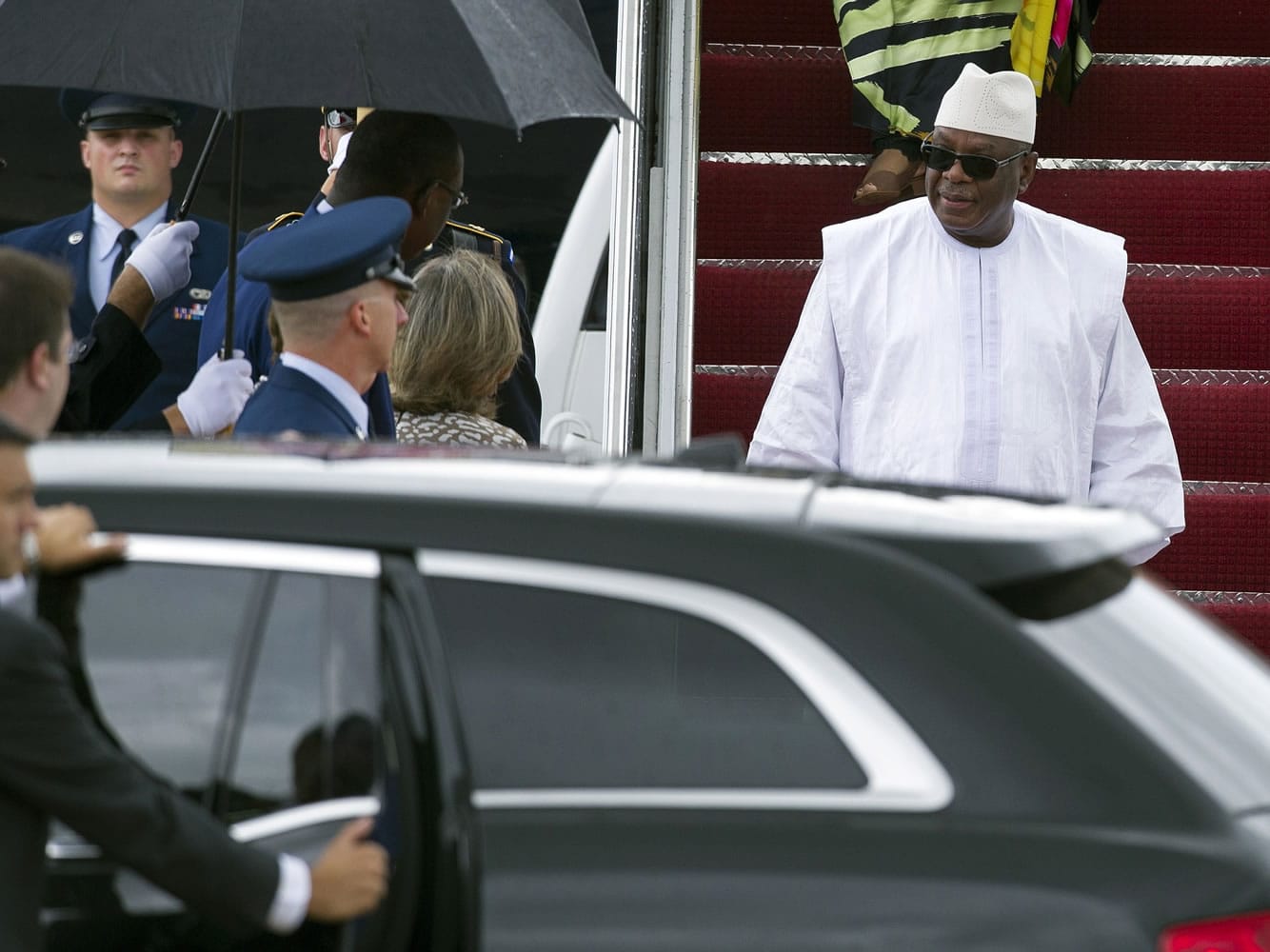WASHINGTON — President Barack Obama will welcome the leaders of nearly all Africa’s nations to Washington next week as part of a first-of-its-kind summit designed to boost economic ties between the United States and Africa.
The U.S.-African Leaders Summit will bring together heads of states, lawmakers, business leaders, development organizations and government officials for a three-day meeting that White House officials are billing as the largest gathering of African leaders ever in Washington.
But it’s being held against the backdrop of an outbreak in Africa of the deadly Ebola virus, which has killed hundreds of people and led a few leaders to cancel their visits as they deal with it. Obama administration officials say the outbreak will not force a change in the summit schedule.
Among the attendees will be a delegation from Libya, which Ben Rhodes, a deputy White House national security adviser, said the administration was “pleased” to welcome, given the unrest that prompted the U.S. to evacuate its embassy staff there.
“It’s important for us to find ways to be able to engage Libyan leaders,” Rhodes said.
The summit, which begins Monday, will focus on a need for companies to invest in the up-and-coming economies in Africa, as well as democracy-building, education and health care. Business deals worth $900 million are expected to be announced at the event.
“We’ve made enormous progress over the last several years in not just providing traditional aid to Africa … but rather partnering and thinking about how can we trade more and how can we do business together, and that’s the kind of relationship that Africa’s looking for,” Obama said Friday.
Africa survived the economic crisis better than expected with growth in telecommunications, construction, transportation and banking. It has six of the world’s 10 fastest growing economies. Nations have averaged growth rates of 5 to 6 percent the past decade. By 2050, 1 in 4 workers worldwide will be in Africa.
Other nations and regions began engaging Africa through summits long before the United States, including Europe, China, Japan and India.
Obama did not pay much attention to sub-Sahran Africa in his first term as he confronted a series of domestic and international crises, including the worst recession since the Great Depression and wars in Iraq and Afghanistan. Last summer, though, he traveled to Africa for a three-country, seven-day trip to start repairing that relationship. The summit builds on that trip.
“An Africa that trades with us, that can defend itself, that can secure itself, and that empowers its citizens; this is the Africa we seek,” Sen. Chris Coons, D-Del., chairman of the Senate Foreign Relations subcommittee on African affairs. “That’s an Africa that we in the United States are uniquely suited to help its people build.”
On Monday, there will be a series of discussions on health, food security, climate and wildlife trafficking. An evening reception with members of Congress is planned.
Obama will participate in two days of events – Tuesday and Wednesday – focused on economic development, democracy and peace. He and his wife, Michelle, will host African leaders at a White House dinner Tuesday.
Outside groups, including nongovernmental organizations and think tanks, are holding about 80 additional events in Washington next week involving the African leaders. Former Presidents George W. Bush and Bill Clinton are expected to attend sessions.
Jennifer Cooke, director of the Africa Program at the Center for Strategic and International Studies, said there’s a chance the frenetic schedule could prevent the summit from offering a coherent message.
(EDITORS: STORY CAN END HERE)
“It’s a crowded schedule,” she said. “There’s a lot going on. Leaders will be running from one event to another.”
White House officials say the Ebola outbreak and international crises in Ukraine, Iraq and the Middle East should not detract from the summit.
“These days there’s no shortage of demands on President Obama and our national security team,” National Security Adviser Susan Rice said. “In every instance, the United States is at the center of international coalitions that are working to advance peace and security. But we are acting with equal energy and determination to seize opportunities for progress – including in Africa.”
White House press secretary Josh Earnest said the Centers for Disease Control and Prevention has determined that the Ebola virus poses “no significant risk in the United States.” But Obama said that the U.S is taking precautions anyway by screening people traveling from countries that have even a marginal risk of having been exposed.
Rhodes said the U.S. invited all of Africa with the exception of certain countries that are not in good standing with the African Union or are of particular concern to the U.S. The five leaders that were excluded are from the Central African Republic, Zimbabwe, Sudan, Eritrea and Western Sahara, which the U.S. and the United Nations do not recognize as a country.
Rhodes said Kenya was invited even though the U.S. has expressed concern that its top leaders face charges in the International Criminal Court for contributing to deadly violence after 2007 elections. Rhodes said the country was “working to address those concerns, and we’ve been supportive of those efforts.”
Some lawmakers and groups criticized the inclusion of leaders who are seen as dictators, and the schedule for not focusing enough on human rights. But Gayle Smith, senior director for development and democracy at the National Security Council, said the summit will provide a chance to address some of those issues.
“We think the summit will provide a number of opportunities to work on some of the cases of chronic conflict or some of the challenges on the continent,” she said.



